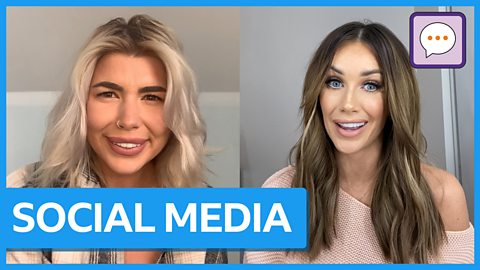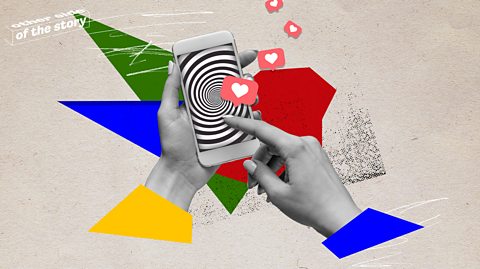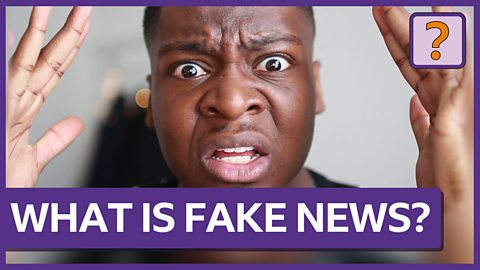When you can’t tell the difference between a real headline and a false one, things can get a bit stressful.
More than that, living in a world of fake news can make us worried and anxious, as we try to find the facts about a scary story or rumour that’s going around school.
In the latest edition of For Fake's Sake, TikTok star Ehiz Ufuah speaks to clinical nurse consultant Emma Selby to find out about how fake news can affect our mental health.
Ehiz: Hello and welcome. My name is Ehiz and today we are going to be looking at all things fake news in the latest episode of For Fake’s Sake. And remember fake news can turn up anywhere, from misleading images on your feed to false claims on YouTube – even fake stories on WhatsApp. Yes, fake news literally lives everywhere. So today, we are going to look at fake news and how this has an effect on our mental health. And I know from me, being overloaded with so much information and not knowing exactly what to believe can really stress me out. To learn more about fake news and the effect it has on our mental health, I’ve invited clinical nurse consultant Emma Selby to the show.
Ehiz: So Emma, thank you so much for coming on the show today. I would like to know – how does fake news have an effect on our mental health?
Emma: So fake news can really harm our mental health. It’s purposefully manipulative, so a headline like ‘University fees leave students in debt until they’re 100’ is designed to cause anxiety. Others can make us scared or even ashamed.
Ehiz: So even before we even read or watch a post?
Emma: Yeah, so in fact just the sheer volume of fake news can overwhelm us. Hearing so many different claims can make us feel uncertain about what to believe, and then that can increase anxiety.
Ehiz: What if we don’t realise if the news is real or fake?
Emma: Consuming fake news without questioning it over time can cause us to warp our sense of selves and the environment around us, and that can have serious consequences. So, for example, if you were consuming a lot of fake news about health and nutrition without questioning it, over time that could lead to something serious like an eating disorder.
Ehiz: Moving forward, what can we do about it?
Emma: So, avoid echo chambers or environments where everybody has the same opinion. Question the news that you’re hearing and look for reputable news sources to back that up. And now and again turn off your feed or avoid the news if you need to.
Ehiz: Great, thank you for that information Emma, it was very useful.
Emma: Thanks for having me.
Ehiz: I never really thought about how headlines can be so manipulative. But at least we now know what to do about it. Avoid echo chambers, always confirm information with a trusted news source – you know, like the BBC – and remember, you aren’t obligated to be connected 100% of the time. If you need a break, take a break. That way, you can stay informed and stay healthy.
Emma’s tips for looking after your mental health
1. Avoid echo chambers
Try to get away from environments where everyone has the same opinion. Often these can spiral out of control with worry, as people who share views and opinions can get stressed out or angry about similar things.
2. Confirm claims with a trusted news source
If you’re getting anxious about a story or claim, make sure to check it with a reliable source. Have a look at a news site that has a track record of reporting facts to see if it’s true – it wouldn’t be a good idea to worry over something that turns out to be made-up.
3. Take breaks
With the latest headlines always rolling in on social media feeds or news apps, it can get a bit overwhelming. Take a break and do something that helps you to relax - whether that's spending time off-screen or watching calming clips of animals or nature, which has been proven to reduce anxiety. On some phones you can even set timers for certain apps which can remind you to take a break.
Where next?
Filtered selfies and fake news
Love Islanders Olivia Bowen and Laura Anderson dig into the misleading world of social media photo filters.

What are echo chambers?
Find out how being in an echo chamber can make it easier for fake news to spread.

What are reliable sources?
TikTok star Ehiz learns how to spot trustworthy sites when searching for the latest news or information.

Fact or Fake?
Find out how to spot and stop fake news with BBC Bitesize.
